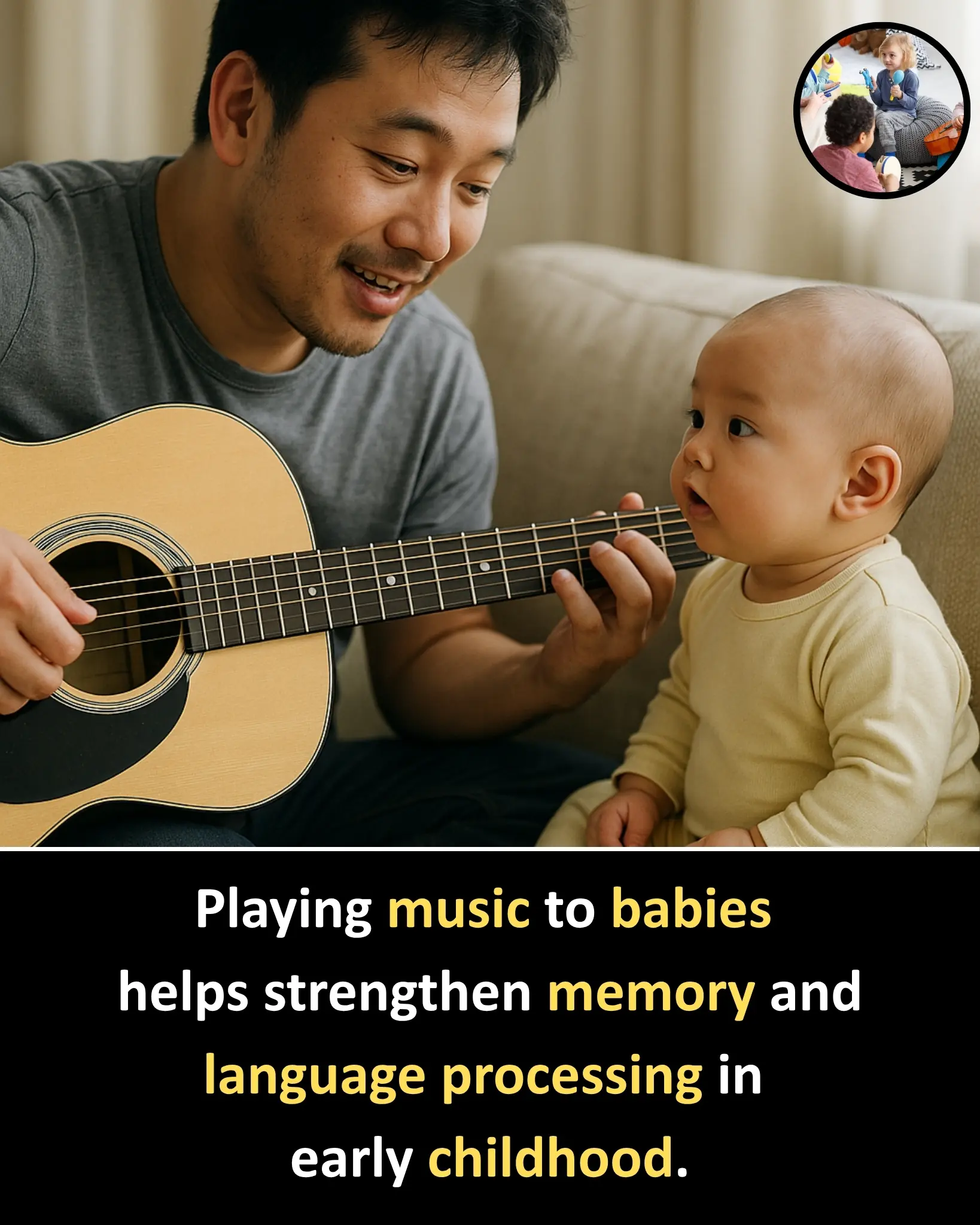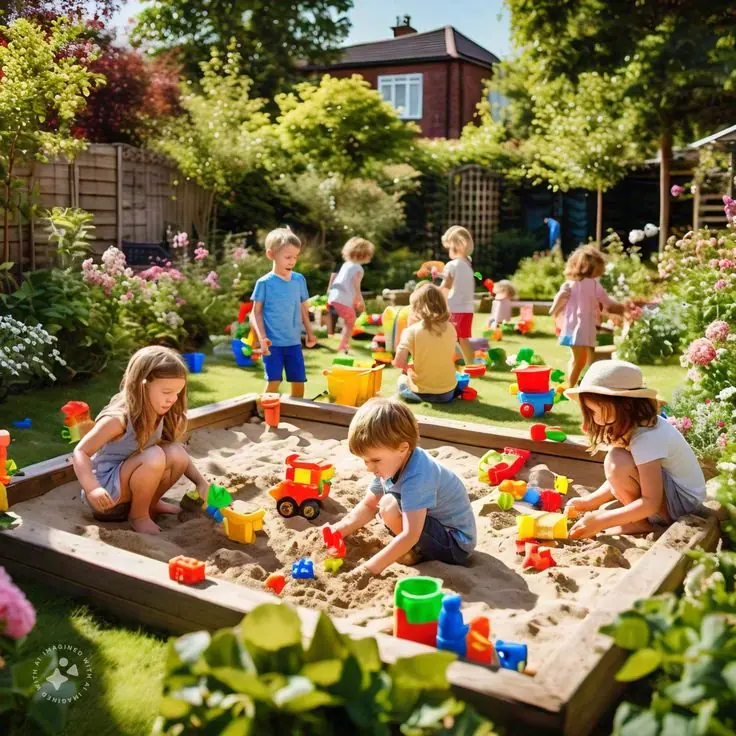
Music and the Mind: How Playing Tunes to Babies Boosts Early Brain Development

In a quiet living room, a father strums his guitar as his baby watches intently, eyes wide with curiosity. Moments like these are more than heartwarming—they are shaping the child’s brain in powerful ways. Research has shown that playing music to babies can significantly enhance their cognitive development, particularly in the areas of memory and language processing.
The Brain’s Rapid Growth Window
The first few years of life are a period of extraordinary brain growth. During this time, a baby’s neural network is forming at an astonishing rate, with millions of new connections being made each second. Music provides a unique form of stimulation because it activates multiple brain regions at once. The auditory cortex processes sound, the hippocampus aids in memory formation, and language-related areas prepare the groundwork for speech.
By engaging these regions simultaneously, music helps babies identify patterns in rhythm and melody. These pattern-recognition skills later translate into better memory retention, sharper listening abilities, and improved problem-solving skills as they grow.
Laying the Foundations for Language
Music doesn’t just entertain—it teaches. Many children’s songs use repetition, rhyme, and simple sentence structures, making it easier for babies to absorb new vocabulary and grasp the rhythm of speech. Whether it’s a soothing lullaby or a playful nursery rhyme, these musical interactions encourage active listening and build early language comprehension.
More Than Words: Emotional and Social Benefits
Beyond the cognitive advantages, music also nurtures emotional development. Gentle melodies can calm a fussy baby, while upbeat tunes can spark joy and laughter. These experiences help regulate mood and foster bonding between parent and child. Over time, this positive emotional association with music can boost attention span, cooperation, and social engagement.
A Lasting Impact
The benefits of early music exposure extend well beyond infancy. Children who experience music-rich environments often demonstrate stronger communication skills, greater learning readiness, and enhanced creativity later in life. By incorporating music into daily routines—whether through singing, playing instruments, or simply listening together—parents can give their children a head start in both intellectual and emotional growth.
In essence, the simple act of playing music for a baby is more than a pastime. It’s an investment in their future, nurturing not only their love for melodies but also the building blocks of memory, language, and lifelong learning.
News in the same category


Tourist’s Selfie Stunt Turns Into Terrifying Crocodile Attack in the Philippines

The Hidden Power of Outdoor Play: How One Hour a Day Shapes Young Minds

People with green eyes are special for these reasons with…

Meaning Behind the Tradition of Coins on Gravestones

Japan’s Tooth Regrowth Drug: Dental Health Revolution!

Resilient Dog Overcomes Neglect and Thrives, Inspiring Change in Animal Welfare

9-year-old dies 10 minutes after posing with this note: Police soon discover terrible mistake that killed her

Witnesses speak out after passenger 'sliced open' as waterslide breaks on world's biggest cruise ship

Three beachgoers dead after sea mines wash up on beach and explode at popular tourist spot

Mom explains why she doesn’t regret giving her daughter’s pony to zoo to become lion food

Netflix is losing 91% rated series that's ‘better the second time’ and you can binge in one day

Tragic Tale of Lost Companion: Finding Peace After a Heartbreaking Ordeal

If you see square waves forming in the ocean, get out of the water immediately

Ever Seen This Creepy Wall-Clinging Moth? Meet the Kamitetep

Disturbing 911 call before police found girl, 10, on highway as dad and girlfriend arrested on murder charges

Reason NY could owe Peanut the Squirrel owners $10,000,000 after pet was seized and euthanized by state

‘Ghost Boy’ wakes up from a coma after 12 years – Then he Reveals his spine-chilling secret

Elephants: Nature’s Gentle Giants with Surprising Swimming Skills
News Post

7 Warning Signs Your Body May Have Parasites

Cloves, Ginger, and Lipton Tea: The Golden Elixir Your Body Craves

Classic Baked Cheesecake with Chocolate Sauce & Ice Cream

Decadent Chocolate Cupcakes with Chocolate Ganache Frosting 📝 Ingredients

A Lost Puppy Wandered Into the Police Station—minutes Later, They Realized Why He Was There

HE HELD HIS K9 PARTNER WITH A SMILE—BUT THE STORY BEHIND THIS PHOTO WILL BREAK YOU

No One Remembered My Birthday—Except A Stranger Who Shouldn’t Have Known

Crispy Waffles with Fresh Berries and Maple Syrup

Chocolate-Drizzled Soft Serve Ice Cream Cone

Ancient Amazonian Kidney Cleanse: Detox with Nature’s Finest Herbal Infusion

Taro Unveiled: The Ancient Root That’s Transforming Modern Wellness

Unlock the Hidden Power of Aloe Vera: The Cancer-Fighting Secret You Need to Know

Clear Vision Naturally: The Ultimate Smoothie to Combat Cataracts and Myopia

Dog Rescued After Being Left Chained Outside in Torrential Rain

Shotley’s Journey: From Neglect to a Loving Home

Celestial Jewelry: Moon Meets the Seven Sisters at Dawn

Lemon & Ginger: The Zesty Duo for Vibrant Digestion, Immunity, and Energy

Discover the Hidden Power of Cloves: Simple Home Remedies to Transform Your Health 🌿

The Nightly Benefits of Eating Raw Garlic Before Bed
